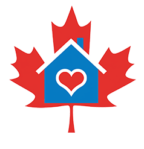
Canada’s senior care system relies on a diverse range of nursing professionals to provide comprehensive care for its aging population. Each type of nurse plays a crucial role in ensuring the health and well-being of seniors across various care settings.
Personalized care in-home allows for individualized attention and care plans tailored to the seniors’ specific needs and preferences. Below are some examples of the different types of nursing available.
It’s helpful to think of the nursing profession as a multi-tiered building, where each floor represents a different level of nursing responsibility. On the ground floor we have the LPNs, then on the middle floor the RNs, and then on the top floor the NPs. Each floor builds upon the knowledge and skill of the one below it.
Registered Nurses (RNs)
RNs form the backbone of senior care in Canada, providing complex medical care and assessments. They develop and manage care plans, working in various settings including home care and long-term care facilities. RNs typically complete a four-year university program leading to a nursing degree.
Some of the types of services RNs typically perform:
- Cardiovascular: complex heart failure management and post-cardiac surgery care
- Diabetes: diabetic wound care, insulin management
- Dementia: / Alzheimer’s: behavioral interventions, family education
- Arthritis: Pain management strategies, mobility assessments
- Respiratory Conditions: complex respiratory assessments, ventilator management
- Falls / Mobility Issues: fall risk assessment, rehabilitation planning
- Incontinence: bladder training programs, catheter care
- Depression / Anxiety: mental health assessments, therapeutic communication
- Osteoporosis: fracture prevention education, post-fracture care
- Malnutrition: nutritional assessments, feeding tube management
- Bedsores: comprehensive assessment, co-ordination of care
Licensed Practical Nurses (LPNs)
LPNs offer basic nursing care under RN supervision. Their responsibilities include monitoring vital signs and assisting with personal care. LPNs are common in long-term care and assisted living settings. Becoming an LPN usually requires a 2-3 year college program leading to a nursing diploma.
The typical types of services that LPNs perform are:
- Cardiovascular: basic cardiac monitoring, medication administration
- Diabetes: blood glucose monitoring, medication administration
- Dementia /Alzheimer’s: Assistance with daily living activities,
- Arthritis: Assistance with exercises, medication administration
- Respiratory Conditions: oxygen therapy monitoring, basic breathing treatments
- Falls / Mobility Issues: assistance with mobility aids, fall prevention
- Incontinence: assistance with toileting, hygiene maintenance
- Depression / Anxiety: mood monitoring, medication administration
- Osteoporosis: assistance with safe mobility, medication administration
- Malnutrition: assistance with feeding, weight monitoring
- Bedsores: basic wound care, dressing changes, monitoring for early signs, assisting with repositioning
Nurse Practitioners (NPs)
NPs are advanced practice nurses with expanded responsibilities. They can diagnose and treat common health conditions and may work in primary care or long-term care settings. NPs often play a crucial role in providing comprehensive care for seniors with complex health needs. It’s important to note that Canada’s healthcare system is primarily publicly funded, with each province and territory responsible for its own healthcare delivery. This structure can lead to variations in access and funding for different types of senior care across the country. However, the general framework of nursing roles remains consistent throughout Canada, adapted to fit within the nation’s healthcare system.
The usual kinds of services that NPs provide are:
- Cardiovascular: diagnosis and management of hypertension, heart disease
- Diabetes: comprehensive diabetes management, medication adjustments
- Dementia /Alzheimer’s: diagnosis, treatment planning, medication prescribing
- Arthritis: advanced pain management, joint injections
- Respiratory Conditions: diagnosis and management of COPD (chronic obstructive pulmonary disease), asthma
- Falls / Mobility Issues: comprehensive geriatric assessments, treatment planning
- Incontinence: diagnosis, medication management, referrals for specialists
- Depression / Anxiety: diagnosis, psychotherapy, medication prescribing
- Osteoporosis: bone density interpretations, treatment planning
- Malnutrition: comprehensive nutritional planning, supplement prescribing
- Bedsores: advanced assessment, prescription of treatments, management of severe cases
